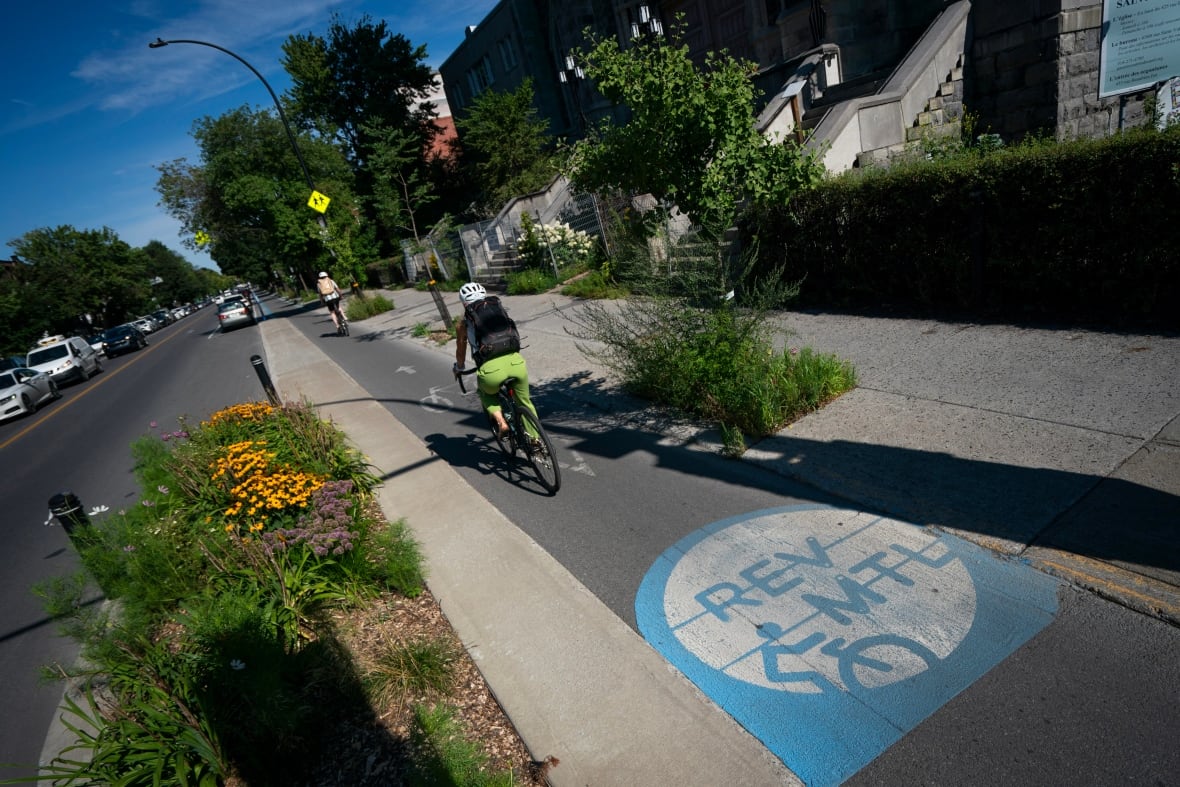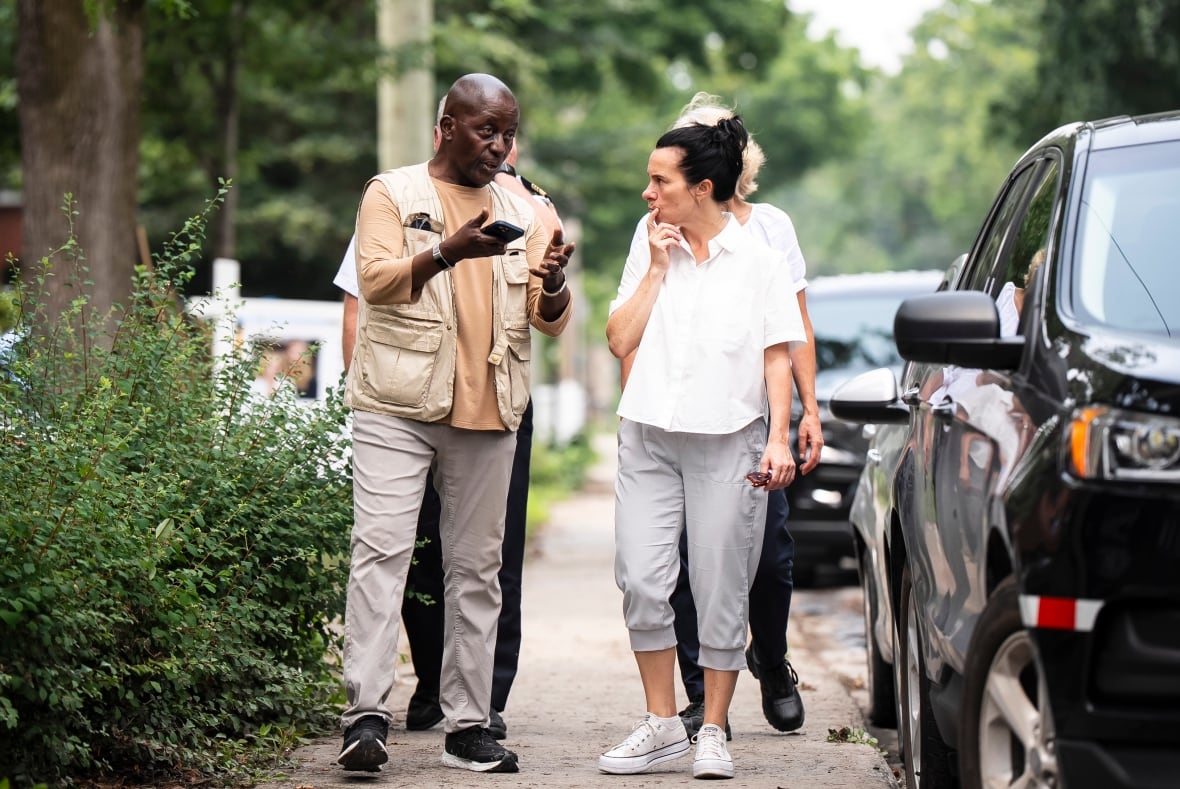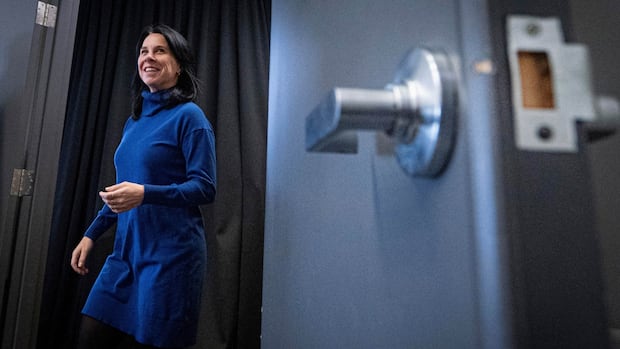Valérie Plante made history in 2017 when she unseated Denis Coderre to become Montreal’s first woman mayor.
She came to city hall with bold promises: a greener city, improved mobility and more affordable housing.
”I’m going to get Montrealers moving again. I’m going to build safer roads for pedestrians, seniors and cyclists,” she said on election night.
Her victory was a political upset that few saw coming — and in the eyes of supporters, Plante ushered in a new era of progressive politics in Montreal.
With her signature laugh and ever-present smile, she was for many a breath of fresh air after Coderre’s bombast and the corruption-ridden tenures of past mayors.
It was a first mayoral victory for Projet Montréal, a party founded in the city’s Plateau neighbourhood in 2004.
“No one gave Projet Montréal any chance of winning. And she made it,” Guedwig Bernier, the former president of Projet, said in an interview.
“For people who support women, for people on the left, it was something extraordinary.”
Plante beat out Coderre, a former federal cabinet minister, again in 2021, in the midst of the global pandemic.
Her re-election, she told her supporters after a resounding win, “proves that you can lead the city of Montreal with a smile.”
Now, as Montreal prepares for a new chapter with a different mayor at the helm, the debate over Plante’s impact is far from settled.
Critics say her administration often prioritized ideology over pragmatism, pointing to bike lanes that sparked backlash from drivers and business owners, and housing policies that failed to keep pace with the city’s affordability crisis.
Valérie Plante isn’t running again, so Quebec’s largest municipality will have a new leader. Here’s a look at the candidates vying for the top job.
Was she a feminist trailblazer who made the city greener and more livable — or a divisive leader who left too many promises unfulfilled and imposed on residents a vision many don’t embrace?
Plante herself has said her most important legacy is making the city greener and better prepared for climate change. Plante’s office declined to make her available for this story.
She is expected to give an interview with CBC News in the coming days as her time as mayor comes to a close.
‘We’re not going back’
In her eight years in office, Plante oversaw an expansion of the city’s cycling network and introduced traffic-calming measures around the city aimed at making the roads safer.
“Nobody, regardless of the party that’s going to win, will look at mobility the way we used to,” Bernier said.
“Everyone agrees that mobility has changed. We’re not going back.”
In addition to prioritizing active transit, she made a big push for more green spaces, such as the West Island’s Parc de l’Ouest, said Jean-Philippe Meloche, an associate professor of urban planning at Université de Montréal.
“We can really see some transformation of Montreal,” he said.

On other files, she was less successful.
The Pink line, a proposed Metro line that would connect Montréal Nord with Lachine, captured imaginations during her first electoral campaign. But it has gone nowhere.
Her second-term promise to build 60,000 social housing units over 10 years has fallen off track, and her administration’s bylaw designed to get developers to include social, family and affordable housing in their projects didn’t get desired results, Meloche said.
“Her policy on housing was well-intentioned, but eight years later, the regulation was not necessarily successful,” Meloche said.
“It’s not that she caused a problem, but she couldn’t solve it.”
Last month, a report documented the failings of the city’s roads — and the lack of co-ordination between construction sites, as well as the boroughs and city hall. Plante had promised to address these problems when she beat out Coderre in 2017.
Homelessness and drug use also climbed during her tenure.
Her successor at Projet Montréal, Luc Rabouin, has distanced himself from Plante on some of her policies — including her commitment to close Mount-Royal to traffic on its eastern side, and her bylaw to get developers to build affordable housing projects.

Blaming the province
Soroya Martinez Ferrada, the mayoral candidate for Projet’s rival Ensemble Montréal, announced her slogan would be “Listen and Act” — a nod to the criticism against Plante that she failed to consult with residents. One of Martinez Ferrada’s first promises was to conduct an audit of the city’s bike paths and remove those deemed to be dangerous.
Martinez Ferrada (and Rabouin) have also promised to improve traffic flow and ease congestion on the roads — something Plante campaigned on eight years ago.
Marvin Rotrand, a former longtime city councillor who now supports Martinez Ferrada, was blunt in his assessment of Plante’s tenure.
“There was actually a lot of hope with the election of Valérie Plante in 2017 that there would be an administration that was more progressive but pragmatic, and that just never arrived,” Rotrand said.
In his view, Plante laid too much blame on the provincial government for not being able to get her priorities done.
Plante has repeatedly called for more support from Premier François Legault’s government when it comes to social housing, public transit and homelessness — arguing the city has had to bear too much of society’s burdens without the resources to do so.
“A mayor has got to learn to understand what the parameters are with the province. You can’t dictate to the province,” Rotrand said.
An ability to laugh
Still, her legacy as Montreal’s first woman mayor and a committed environmentalist will endure, said Justine McIntyre, a former city councillor and political analyst.

“She came in as a small woman that people underestimated and was able to punch way above her weight. She came in with a tremendous amount of confidence and used being underestimated as fuel to work harder,” she said.
From sponge parks to countering urban heat islands with trees, McIntyre said “climate-related projects have been an important part of her legacy as well.”
Plante told her political journey in her graphic novel, published in 2020, entitled, Okay, Universe: Chronicles of a Woman in Politics.
The novel tells the story of Simone Simoneau — modelled on Plante — a young community organizer who decides to take the plunge into politics by running for a seat on city council.
When she published the book, Plante said she would still recommend politics to young people despite the challenges of being under such close public scrutiny.
McIntyre said Plante was able to navigate a multitude of challenges through her time in office, including a global pandemic and soaring inflation, and take the criticism levelled against her in stride.
“She has a shield and her shield is her ability to laugh at things,” McIntyre said.
“Even with that, she has decided not to interact on social media and turned off comments. That’s a good indicator of the kind of environment we’re in now.”








